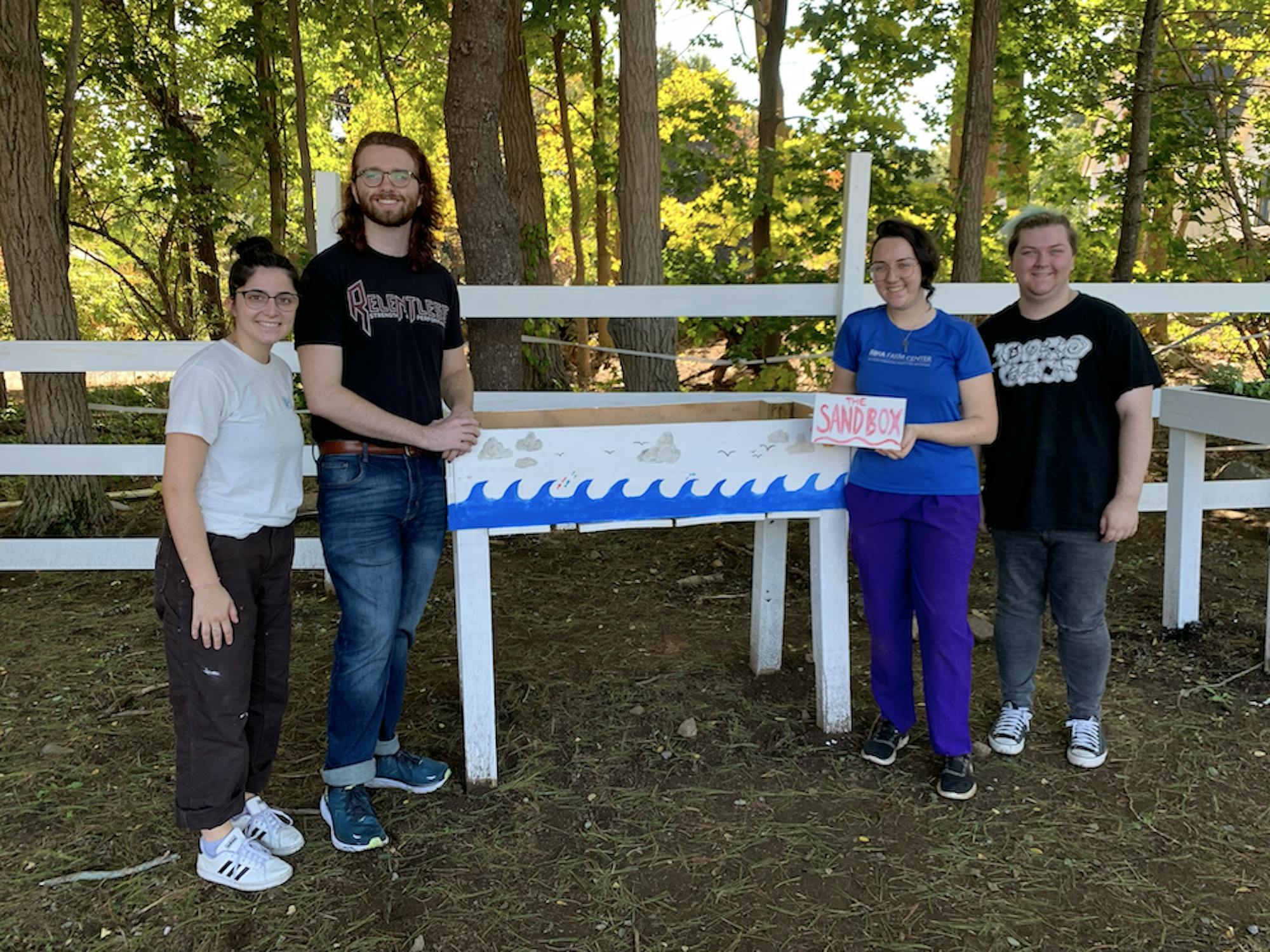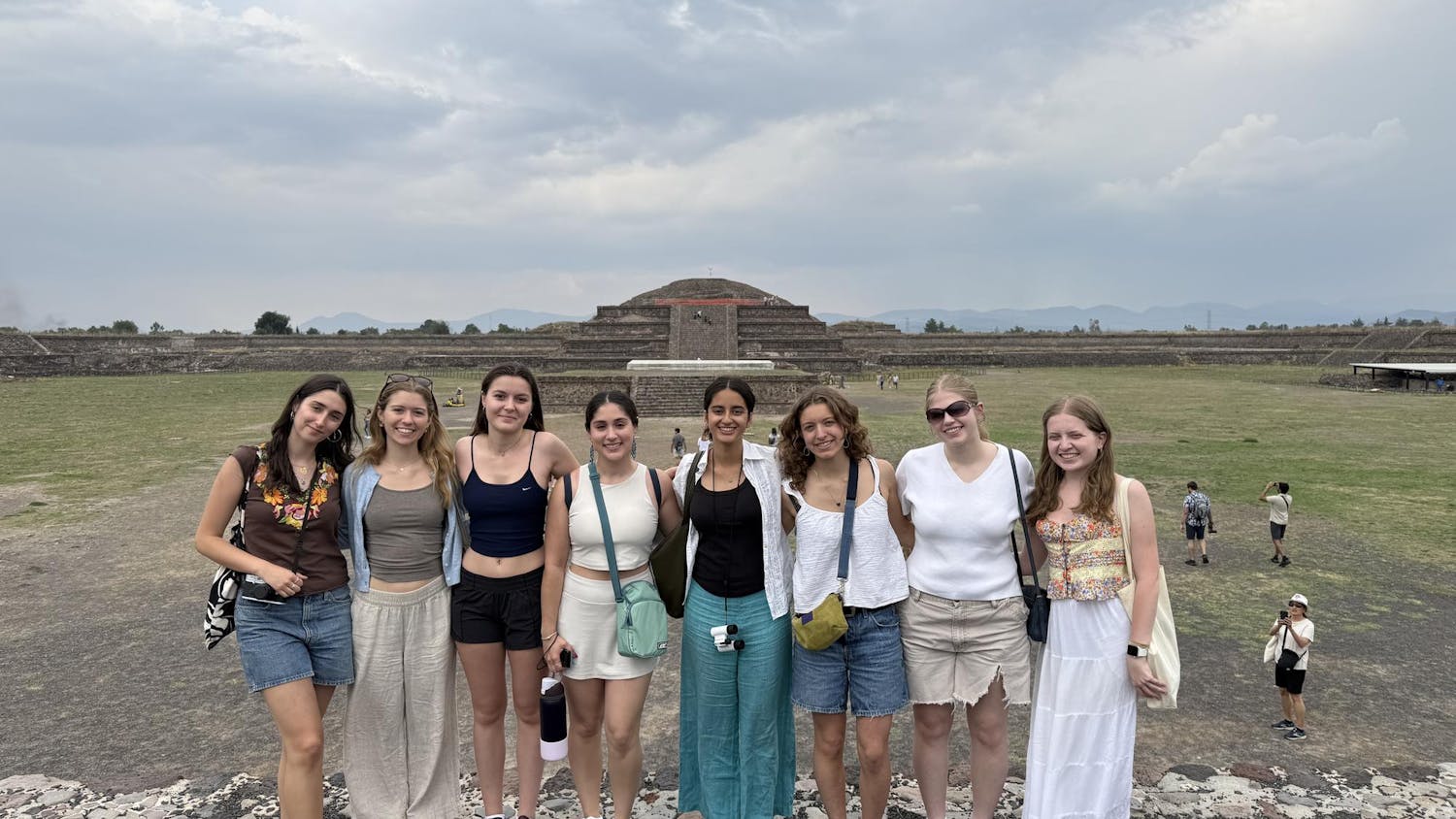Tufts’ Access Betters the Lives of Everyone, or ABLE, is a student-run club “focused on connecting students with disabilities in a mutually supportive community,” according to its website. Since the club first began in 2020, its mission and goals have continued to evolve.
In 2020, during senior Jessie Goober’s first year at Tufts, the StAAR center — which was at the time called SAS (Student Accessibility Services) — reached out to the Tufts community to start a club for students with disabilities. Goober, who was diagnosed with ADHD in fifth grade and with dyslexia in high school, became involved at the onset. Her personal story inspired her to explore and develop this stronger community for disabled students.
“I didn’t think I had ADHD right from the start,” Goober said. “I was like, I don’t have anything. I’m great in school. I don’t have it, because we had created it to be such a terrible thing.”
Once at Tufts, Goober ended up taking the lead, and ABLE, a student organization, was formed with an affiliation with the StAAR center.
“Our initial mission statement was that we focus on advocating [for] and supporting students with disabilities at Tufts, while trying to create a community for those students because the nature of disability is that it’s isolating [for] people,” Goober said.
As there is no singular definition of disability, Goober commented that you don’t have to identify as having a disability to be a part of ABLE.
“Identifying as a person with a disability looks like a lot of different things for a lot of different people,” Goober said.“People with disabilities don’t all identify as being disabled or being a person with a disability.”
Previously, ABLE was mostly preoccupied with hosting community-based events, but has since modified their agenda due to a lack of funding.
“We shifted our focus this semester to being an advocacy group, more than just a community-based group because we literally [had] no funding,” Goober said.
An important goal for ABLE is to establish a disability center that would function like an affinity house, and may get additional traction depending on the results of this year’s TCU senate elections on Feb. 1 and Feb. 2.
“Our main goal is to get a disability center … to have a staff dedicated to students with disabilities that [focuses] on building community and advocating for students.”
In January, a TCU disability community senator position was created, which — according to Goober — would help ABLE work towards their ambitions. Limited budget and space on campus have been their primary obstacles to petitioning for a disability center thus far. A disability center would ideally provide an accessible location for the club and anybody from the Tufts community to gather.
“Finding space is really challenging, but that doesn’t mean that it couldn’t start somewhere small,” Goober said. “We [currently] don’t have any accessible meeting space.”
Goober imagines that the center would offer a multipurpose space with sensory-friendly furniture, fidget toys, a quiet zone and more.
“The dream would be to have a sensory-friendly space,” Goober said. “[A place you can] work, be, and exist, and you would know you have a space on campus that Tufts cares about you. Tufts wants you here.”
Kirsten Behling, Associate Dean of StAAR, expressed her support for the idea to create a disability center on campus.
“I think an affinity house is a wonderful idea,” Behling wrote in an email to the Daily. “I have not been contacted about it directly but am excited to learn that students are engaged in conversations and planning.”
Ary Wolfe-Herman, a junior and member of ABLE, echoed the need for an appropriate space to serve the disabled community, and highlighted the difficulties that ABLE has faced without one.
“[ABLE has] tried so many different things: being more educational, or being more [of just] a community space and hanging out, and also doing activism,” Wolfe-Herman said. “It’s been very difficult with the nature of disability to keep a consistent face and just have a place where people can be all together, especially because in general Tufts is so inaccessible. So, it’d be really lovely to have a place that can function at all those different branches of being an educational space, but also just being a place to rest and hang out.”
Wolfe-Herman joined ABLE their first year at Tufts, and currently helps in various capacities, such as running social media and club meetings. They valued the community it provided.
“It was so nice being in a room full of people who shared very similar experiences,” they said.
Though ABLE is expecting to soon become a TCU-funded student organization, it has historically been affiliated with the StAAR Center. The StAAR Center is a resource for students with disabilities to get their accommodations and navigate their education at Tufts, though this is not their only function.
Goober hopes that partnering with TCU will provide ABLE with more flexibility.
“It’s a bit tricky when your budget and everything, ability to book rooms, things like that come from the center that you happen to be really critical of,” Goober said. “We have to ask permission to do a lot of things.”
Goober noted that SAS, the former iteration of the StAAR Center, had a more narrow scope and played a different role from how the StAAR Center currently functions. Goober believes StAAR’s increased role has limited the extent to which it can support students with disabilities.
“SAS, which was the organization before [StAAR], they were just focused on students with disabilities,” Goober said. “The point is that the StAAR center is not there to create a community for students with disabilities or even advocate for students with disabilities,” Goober said.
When she graduates in the spring, Goober will be working at the Bank of America as a technical analyst on an accessibility team. She credited ABLE for shaping a lot of her understanding in that work.
While ABLE is working hard on future projects, like the disability center, it has also been quite active this past semester.
“This semester we volunteered with BINA [Farm Center],” Goober said. “BINA is a horse riding therapeutic barn … and [we] just did a bunch of random things they needed, [including] painting a fence.”
ABLE would also like to hold round table discussions on topics like disability and friendship, as well as disability, sexuality and gender identity. Movie nights are another bonding activity they seek to do. As circumstances on campus evolve, ABLE’s mission and role at Tufts will always aim to center disability justice and foster a sense of belonging.






